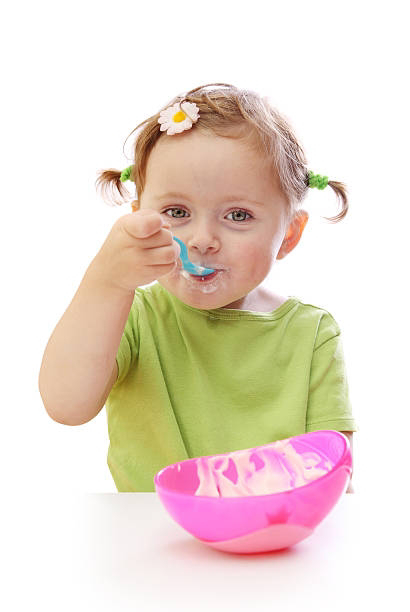As babies grow and develop, they eventually reach a stage where they can begin to eat solid food. It is important for parents and caregivers to start planning and thinking about how to introduce solid foods to their baby. This involves selecting appropriate foods that are safe and nutritious for the baby's age and developmental stage. Homemade foods can be a great option, as they allow parents to control the ingredients and ensure that the food is fresh and free from harmful additives. It is essential to introduce foods gradually and to pay attention to any signs of allergy or intolerance. Good nutrition during this critical stage of development can have long-lasting benefits for the baby's health and well-being.
For parents who are concerned about the ingredients in their baby's food, there are several safe and pre-made options available in the market, such as organic baby food. However, some mothers prefer to prepare homemade organic baby food to ensure complete control over the ingredients. The process of preparing homemade organic baby food may seem daunting, but it is simpler than one might think.
Home made food advantages
Parents who choose to feed their children homemade food enjoy several advantages. Firstly, they have complete control over the ingredients that go into their child's meal. This allows them to ensure that their child is getting the right nutrients and avoiding any harmful additives or preservatives that may be found in processed foods.
Secondly, homemade food is often fresher and tastier than pre-packaged meals, as it is made from scratch using high-quality ingredients. This can help to develop a child's palate and encourage them to appreciate healthy, nutritious food.
Additionally, parents who make their own meals can save money in the long run, as buying ingredients in bulk and cooking at home is often more cost-effective than buying pre-packaged meals or eating out.
Parents who opt for homemade baby food have the advantage of selecting their own fruits, vegetables, and other foods to create purees for their little ones. Unlike pre-packaged baby food options, which offer a limited range of flavors, homemade baby food allows parents to be creative with their ingredients and choose from a wider variety of fruits and vegetables that are not typically found in baby food aisles at the store. For instance, melons and avocados, which are not commonly included in pre-packaged baby food, can be easily incorporated into homemade purees, giving babies exposure to a wider range of flavors and nutrients.
When parents prepare homemade purees for their babies, they have the advantage of introducing their little ones to the same foods that the rest of the family eats, albeit in puree form. This helps babies to become accustomed to the flavors and textures of different foods and encourages them to develop a more varied palate from an early age. Furthermore, when babies are exposed to a wider range of foods through homemade purees, they are more likely to enjoy and accept those same foods when they are served in solid form later on. As a result, homemade purees can help to lay the foundation for healthy eating habits that can last a lifetime.
Finally, preparing meals together as a family can be a fun and rewarding experience, allowing parents to bond with their children over the shared experience of cooking and eating together.
Important Considerations to Keep in Mind"
Parents who have attempted to make their own baby food but struggled with the process often highlight one main drawback: the amount of time required. Preparing a large quantity of small servings of homemade baby food can be a time-consuming task. On the other hand, purchasing prepackaged servings of baby food can save parents a significant amount of time and effort.
When it comes to feeding babies, convenience and storage are important factors to consider. Prepackaged baby foods are convenient as they come in pre-measured and ready-to-serve forms. This saves time and effort for busy parents who may not have the time to prepare homemade baby food from scratch. On the other hand, homemade baby food requires more effort and time to prepare, and needs to be stored properly to prevent spoilage. Homemade baby food needs to be refrigerated, taking up space in the fridge or freezer if made in large batches. Prepackaged baby food, on the other hand, does not require refrigeration before opening, making it easier to store and use.
Bamboo dinner set
Investing in a high-quality bamboo dinner set can bring a lot of convenience to your dining experience, especially when it comes to serving your children. Not only is bamboo fibre a sustainable and healthy material, but the sturdy segmented plate in this children's collection also ensures easy mealtime organization. Additionally, the set includes all the essential dining utensils, such as a mug, spoon, bowl, and fork, making it a flexible and practical choice for families. Overall, choosing a bamboo dinner set can make a significant difference in your daily routine and contribute to a more eco-friendly lifestyle.
Simple Steps to Making Baby Food
Making baby food is a simple and easy process that requires just a few steps. Here are some simple steps to making baby food:
Choose the Right Ingredients: Choose fresh fruits and vegetables that are in season and have a high nutritional value. Organic produce is recommended, as it is free from pesticides and chemicals.
Clean and Prepare the Ingredients: Before making baby food, it's important to maintain hygiene by washing hands and any appliances that will be used. Wash and rinse the fruits and vegetables thoroughly to remove any dirt or contaminants. Remove any stems, seeds, or tough skins, and chop the produce into small pieces for easy blending
Cook or Steam the Ingredients: Steam or cook the fruits and vegetables until they are tender and easy to puree. You can use a steamer basket, microwave, or oven to cook the produce.
Blend or Puree the Ingredients: Once the produce is cooked, use a blender or food processor to puree the fruits and vegetables until they are smooth and creamy. Add water, breast milk, or formula as needed to achieve the desired consistency.
Store and Serve: Transfer the pureed baby food into small containers or ice cube trays and store them in the refrigerator or freezer. When it's time to feed your baby, simply thaw the frozen food and warm it up before serving.
To store baby food, you should place it in sealed bags or containers and store them in the refrigerator or freezer. Packaged infant food can be kept in a cupboard before opening, while homemade baby foods cannot as they are fresh. When it's time to feed the baby, simply reheat the food and let it cool before serving. These simple tips will help you make the transition from liquid to solid foods with ease.
Experiment with Flavors: As your baby grows and develops, you can introduce new flavors and textures into their diet. Try adding spices, herbs, or other healthy ingredients to make the baby food more exciting and tasty.
Remember to always consult with your pediatrician before introducing new foods to your baby's diet.











Comments
Post a Comment
If you have any queries please let me know